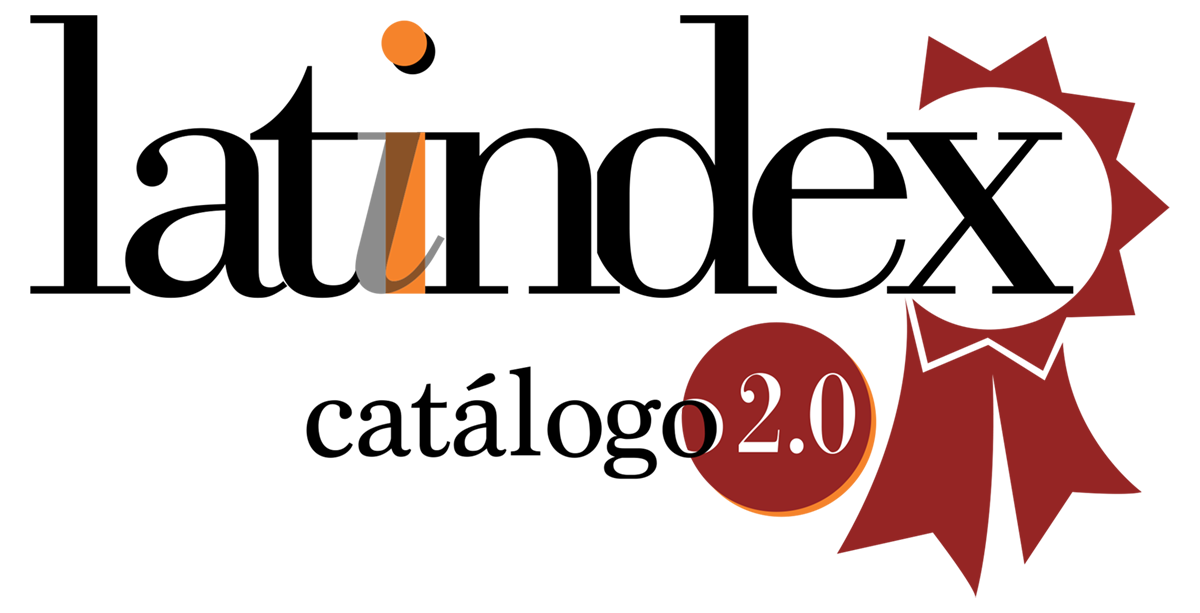Tasa de egreso hospitalario por fibromialgia en Chile desde el año 2019 a 2022
DOI:
https://doi.org/10.52611/confluencia.2024.1129Palabras clave:
Fibromialgia, Prevalencia, Epidemiología descriptiva, Chile, Dolor crónicoResumen
Introducción: La Fibromialgia es la causa principal de dolor crónico generalizado, y suele asociarse a fatiga y trastornos del sueño y psiquiátricos. Tiene una prevalencia de entre 0,2 a 6,6% en la población general a nivel global. Es objeto de discusión su origen orgánico y/o psicogénico. Objetivo: Describir la tasa de egreso hospitalario por Fibromialgia durante el periodo 2019-2022 en Chile. Metodología: Estudio descriptivo, observacional y transversal, se calculó la tasa de egreso hospitalario por Fibromialgia según grupo etario, sexo y promedio de días de hospitalización en el periodo 2019-2022 en Chile (N=188). Se utilizó la base de datos del Departamento de Estadísticas e Información de Salud y del Instituto Nacional de Estadísticas. Resultado: La tasa de egreso hospitalario total del período estudiado fue de 0,27, siendo mayor en mujeres (0,47) que en hombres (0,05). El grupo etario de 40 a 49 años presentó la mayor tasa de egreso hospitalario (0,69). El promedio de estadía hospitalaria corresponde a 5,25 días. Discusión: La mayor prevalencia en mujeres de 40 a 49 años se puede atribuir a factores como fluctuaciones hormonales, la coexistencia de patologías psiquiátricas y la menor práctica de actividad física. La tasa de egreso hospitalario se vio disminuida durante los años 2020-2021, lo cual podría asociarse al contexto de pandemia. En los demás años tuvo una tendencia más bien estacionaria. Conclusión: Este estudio evidencia la importancia de aplicar criterios diagnósticos de forma global y permitirá seguir estudiando la clara asociación con el sexo femenino y condiciones psiquiátricas.
Descargas
Citas
Mascarenhas RO, Souza MB, Oliveira MX, Lacerda AC, Mendonça VA, Henschke N, et al. Association of Therapies With Reduced Pain and Improved Quality of Life in Patients With Fibromyalgia: A Systematic Review and Meta-analysis. JAMA [Internet]. 2021 [citado el 5 de junio 2024];181(1):104-12. Disponible en: https://doi.org/10.1001/jamainternmed.2020.5651
Goldenberg DL. Diagnosing Fibromyalgia as a Disease, an Illness, a State, or a Trait? Arthritis Care Res [Internet]. 2019 [citado el 5 de junio 2024];71(3):334-6. Disponible en: https://doi.org/10.1002/acr.23727
Vincent A, Lahr BD, Wolfe F, Clauw DJ, Whipple MO, Oh TH, et al. Prevalence of fibromyalgia: a population-based study in Olmsted County, Minnesota, utilizing the Rochester Epidemiology Project. Arthritis Care Res [Internet]. 2013 [citado el 5 de junio 2024];65(5):786-92. Disponible en: https://doi.org/10.1002/acr.21896
Treede RD, Rief W, Barke A, Aziz Q, Bennett MI, Benoliel R, et al. Chronic pain as a symptom or a disease: the IASP Classification of Chronic Pain for the International Classification of Diseases (ICD-11). Pain [Internet]. 2019 [citado el 5 de junio 2024];160(1):19-27. Disponible en: https://doi.org/10.1097/j.pain.0000000000001384
Tour J, Löfgren M, Mannerkorpi K, Gerdle B, Larsson A, Palstam A, et al. Gene-to-gene interactions regulate endogenous pain modulation in fibromyalgia patients and healthy controls-antagonistic effects between opioid and serotonin-related genes. Pain [Internet]. 2017 [citado el 5 de junio 2024];158(7):1194-203. Disponible en: https://doi.org/10.1097/j.pain.0000000000000896
Pomares FB, Funck T, Feier NA, Roy S, Daigle-Martel A, Ceko M, et al. Histological Underpinnings of Grey Matter Changes in Fibromyalgia Investigated Using Multimodal Brain Imaging. J Neurosci [Internet]. 2017 [citado el 5 de junio 2024];37(5):1090-101. Disponible en: https://doi.org/10.1523/jneurosci.2619-16.2016
Jensen KB, Srinivasan P, Spaeth R, Tan Y, Kosek E, Petzke F, et al. Overlapping structural and functional brain changes in patients with long-term exposure to fibromyalgia pain. Arthritis Rheum [Internet]. 2013 [citado el 5 de junio 2024];65(12):3293-303. Disponible en: https://doi.org/10.1002/art.38170
Sluka KA, Clauw DJ. Neurobiology of fibromyalgia and chronic widespread pain. Neuroscience [Internet]. 2016 [citado el 5 de junio 2024];338:114-29. Disponible en: https://doi.org/10.1016/j.neuroscience.2016.06.006
Rizzi M, Radovanovic D, Santus P, Airoldi A, Frassanito F, Vanni S, et al. Influence of autonomic nervous system dysfunction in the genesis of sleep disorders in fibromyalgia patients. Clin Exp Rheumatol [Internet]. 2017 [citado el 5 de junio 2024];35 Suppl 105(3):74-80. Disponible en: https://doi.org/10.1136/annrheumdis-2017-eular.3365
Arnold LM, Bennett RM, Crofford LJ, Dean LE, Clauw DJ, Goldenberg DL, et al. AAPT Diagnostic Criteria for Fibromyalgia. J Pain [Internet]. 2019 [citado el 5 de junio 2024];20(6):611-28. Disponible en: https://doi.org/10.1016/j.jpain.2018.10.008
Clauw DJ. Fibromyalgia: a clinical review. JAMA [Internet]. 2014 [citado el 5 de junio 2024];311(15):1547-55. Disponible en: https://doi.org/10.1001/jama.2014.3266
Macfarlane GJ, Kronisch C, Dean LE, Atzeni F, Häuser W, Fluß E, et al. EULAR revised recommendations for the management of fibromyalgia. Ann Rheum Dis [Internet]. 2017 [citado el 5 de junio 2024];76(2):318-28. Disponible en: https://doi.org/10.1136/annrheumdis-2016-209724
Kundakci B, Hall M, Atzeni F, Branco J, Buskila D, Clauw D, et al. International, multidisciplinary Delphi consensus recommendations on non-pharmacological interventions for fibromyalgia. Semin Arthritis Rheum [Internet]. 2022 [citado el 5 de junio 2024];57:152101. Disponible en: https://doi.org/10.1016/j.semarthrit.2022.152101
Ghavidel-Parsa B, Bidari A, Amir Maafi A, Ghalebaghi B. The Iceberg Nature of Fibromyalgia Burden: The Clinical and Economic Aspects. Korean J Pain [Internet]. 2015 [citado el 5 de junio 2024];28(3):169-76. Disponible en: https://doi.org/10.3344/kjp.2015.28.3.169
Bilbeny N. Dolor crónico en Chile. Rev Med Clin Condes [Internet]. 2019 [citado el 5 de junio 2024];30(6):397-406. Disponible en: https://doi.org/10.1016/j.rmclc.2019.08.002
Vargas C, Bilbeny N, Balmaceda C, Rodríguez MF, Zitko P, Rojas R, et al. Costs and consequences of chronic pain due to musculoskeletal disorders from a health system perspective in Chile. Pain Rep [Internet]. 2018 [citado el 5 de junio 2024];3(5):e656. Disponible en: https://doi.org/10.1097/pr9.0000000000000656
Ornell F, Borelli WV, Benzano D, Schuch JB, Moura HF, Sordi AO, et al. The next pandemic: impact of COVID-19 in mental healthcare assistance in a nationwide epidemiological study. Lancet Reg Health Am [Internet]. 2021 [citado el 5 de junio 2024];4:100061. Disponible en: https://doi.org/10.1016/j.lana.2021.100061
Ruschak I, Montesó-Curto P, Rosselló L, Aguilar Martín C, Sánchez-Montesó L, Toussaint L. Fibromyalgia Syndrome Pain in Men and Women: A Scoping Review. Healthcare [Internet]. 2023 [citado el 5 de junio 2024];11(2):223. Disponible en: https://doi.org/10.3390/healthcare11020223
Bhargava J, Hurley J. Fibromyalgia [Internet]. USA: StatPearls; 2023 [citado el 5 de junio 2024]. Disponible en: https://www.ncbi.nlm.nih.gov/books/NBK540974/.
Costa LP, Ferreira M de A. Fibromyalgia from the gender perspective: Triggering, clinical presentation and coping. Texto Contexto - Enferm [Internet]. 2023 [citado el 5 de junio 2024];32:e20220299. Disponible en: https://doi.org/10.1590/1980-265X-TCE-2022-0299en
Masquelier E, D’haeyere J. Physical activity in the treatment of fibromyalgia. Joint Bone Spine [Internet]. 2021 [citado el 5 de junio 2024];88(5):105202. Disponible en: https://doi.org/10.1016/j.jbspin.2021.105202
Fernández-Verdejo R, Suárez-Reyes M. Inactividad física versus sedentarismo: análisis de la Encuesta Nacional de Salud de Chile 2016-2017. Rev Méd. Chile [Internet]. 2021 [citado el 5 de junio 2024];149(1):103-9. Disponible en: http://dx.doi.org/10.4067/S0034-98872021000100103
The Lancet Public Health. Time to tackle the physical activity gender gap. Lancet [Internet]. 2019 [citado el 5 de junio 2024];4(8):e360. Disponible en: https://doi.org/10.1016/s2468-2667(19)30135-5
Bondarev D, Finni T, Kokko K, Kujala UM, Aukee P, Kovanen V, et al. Physical performance during the menopausal transition and the role of physical activity. J Gerontol A Biol Sci Med Sci [Internet]. 2021 [citado el 5 de junio 2024];76(9):1587-90. Disponible en: https://doi.org/10.1093/gerona/glaa292
Nicol AL. Fibromyalgia. In: Conn’s Current Therapy 2024 [Internet]. Elsevier; 2024 [citado el 5 de junio 2024] p. 1016-19. Disponible en: https://elsevier.com/books/conns-current-therapy-2024/kellerman/978-0-443-12151-7
Descargas
Publicado
Cómo citar
Número
Sección
Licencia
Derechos de autor 2024 Revista Confluencia

Esta obra está bajo una licencia internacional Creative Commons Atribución-NoComercial-SinDerivadas 4.0.








